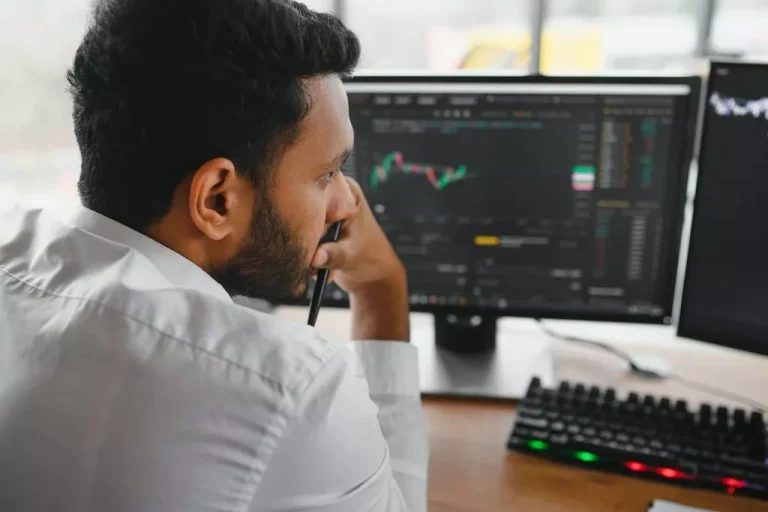The group can additionally be seen as extra subtle than the common retail investor and, in some cases, they’re subject to much less restrictive regulations. Institutional traders are usually considered to be more adept at investing due to the assumed professional nature of operations and higher access to corporations because of institutional trading dimension. These advantages could have eroded over the years as information has turn out to be more clear and accessible, and regulation has limited disclosure by public corporations.
Get Free Foreign Exchange Alerts Now On !
The evolution of the institutional trading paradigm is inexorably linked to the progressive march of know-how. As we now have explored throughout this narrative, the diagrammatic panorama of trading by large-scale entities corresponding to Citigroup and J.P. Morgan – people who comprise the spine of institutional funding – is ever-morphing.
The Role And Influence Of The Institutional Dealer
Now, let’s delve deeper into the world of institutional buying and selling and explore its key differences from retail trading. To obtain success in institutional trading, it’s important to develop a stable understanding of the markets you are working in and stay up-to-date with business developments. Advances in technology have made it simpler for institutions to access details about the market and execute trades quickly and efficiently. Institutional merchants also maintain a big influence on the value dynamics of the market. This technique could be advantageous for establishments seeking to make massive trades with out considerably impacting the market price.

How Much Do Institutional Traders Earn?
This degree of influence can result in extra environment friendly value discovery and increased market transparency. Professional institutional merchants are also recognized for his or her exclusive entry to classy financial devices and cutting-edge expertise. While private buyers may be restricted to more conventional investments, institutional merchants deal in commodities corresponding to forwards, swaps, and derivatives, harnessing their complexity for strategic gains. Furthermore, their dedication to advanced know-how ends in more informed trading decisions and environment friendly trade execution. Embarking on a journey through the complex world of institutional buying and selling reveals a sphere dominated by entities as strong as CitiGroup and J.P. These institutional merchants are the professionals operating the levers behind substantial funds and influencing market dynamics through calculated funding maneuvers.
Q: What’s The Distinction Between Retail Merchants And Institutional Traders?
Thus, the dealer is unlikely to buy inventory in a speculative part and hold it all the means in which to the actual announcement. The dealer is anxious with capturing a few of the momenta within the speculative phase and should commerce in and out of the identical stock a quantity of instances because the rumormongers go to work. The dealer may maintain a long place within the morning and quick in the afternoon being ever watchful of charts and Level 2 knowledge for signs of when to change position. The fundamental dealer is usually more concerned with acquiring information on speculative events that the the rest of the market might lack. To stay one step forward of the market, astute traders can usually use their information of historic buying and selling patterns that happen during the introduction of stock splits, acquisitions, takeovers, and reorganizations. Similarly, analyst upgrades and downgrades may present a short-term buying and selling opportunity, significantly when a distinguished analyst unexpectedly downgrades a stock.
One of some great benefits of institutional buying and selling is that merchants can trade blocks of no less than 10,000 shares and can minimize prices since institutional traders usually negotiate decrease commissions and charges. Whether you are a retail or institutional trader, it is essential to keep informed about the newest trends and developments in the market to make informed selections about your investments. Institutional trading is an important aspect of the financial market, the place giant establishments corresponding to banks, hedge funds, and pension funds trade securities on behalf of their shoppers.
Hence, institutional buyers strategise to spend cash on unique devices to be able to diversify the portfolio significantly. Factor investing is an funding technique that helps create a portfolio by choosing securities based mostly on factors. First of all, allow us to check out the examples of corporations that trade on the behalf of their shoppers. Such firms that help their purchasers with investment providers are known as institutional trading firms. The two major types of traders are the institutional investor and the retail investor.
What Qualifies As An Institutional Investor?
While HFT could be highly worthwhile, it also has a significant impact available on the market. Institutional traders are nicely conscious of this and use their influence to maximise earnings while minimizing their market influence. Institutional traders pay shut consideration to financial indicators like inflation charges, employment figures, and central bank policies. These indicators provide insights into the strength of an economy, helping merchants predict long-term currency developments. For example, if a country’s central bank is predicted to lift rates of interest, institutional merchants may buy that country’s foreign money in anticipation of its value increasing.
- Rarely is an acquisition announcement seen positively, so shorting an organization that’s doing the buying is a twofold sound strategy.
- Forex buying and selling is commonly perceived as the playground of retail traders, dabbling with a few hundred or thousand dollars.
- This distinction in measurement has an enormous influence on the value of securities, as institutional trades can transfer costs more than retail trades.
- Institutional buyers account for approximately 80% of the amount of trades on the New York Stock Exchange.
- At the confluence of economic acumen and technological prowess, institutional strategies solid a lengthy shadow over the global marketplace.
An institutional investor is an organization or organization that invests cash on behalf of other people. Institutional investors often buy and sell substantial blocks of stocks, bonds, or other securities and, for that cause, are thought-about to be the whales on Wall Street. Retail traders, by contrast, are characterized by their smaller, more nimble trades, sometimes in round lots of about a hundred shares. These trades hardly ever transfer the market needle in the method in which institutional trades do, permitting retail traders to function underneath the radar of bigger market currents.
Continuous learning allows institutional traders to remain informed about market developments and adapt their strategies to remain forward of the competition. Institutional merchants keep knowledgeable about the newest market trends, economic developments, and political events. They understand that the more they know, the higher equipped they are to make knowledgeable trading selections. The foreign exchange market is constantly evolving, and institutional merchants know that steady studying is essential to staying forward of the curve. They put cash into ongoing education, attending seminars, studying research papers, and learning from their peers.
By bearing in mind components such as transaction dimension, entry to resources, majority possession, and liquidity issues, you’ll have the ability to better place yourself for achievement on the earth of investing. This is why it is necessary to control institutional buying and selling activities as they will present valuable insights into the longer term prospects of a company. They use their expertise to manage their portfolio in such a method that they are largely successful in their trades.
Transitioning from a retail trader to a profitable institutional trader includes certain conditions, notably in terms of academic qualifications. A strong institutional trader profession typically requires a strong foundation in monetary schooling paired with keen analytical expertise to watch and improve buying and selling efficiency. Notably, inside an institutional context, job alternatives are, to a big extent, influenced by one’s educational background and hands-on expertise in monetary markets. In navigating the complicated terrain of financial markets, profitable institutional merchants implement strategic approaches that meld analytical prowess with cutting-edge expertise. These methodologies are crafted not only to seize revenue however to sculpt the market panorama, exerting affect by way of precision and foresight.
In addition, institutional buyers usually avoid buying a high percentage of firm ownership as a result of performing such an act might violate securities laws. For instance, mutual funds, closed-end funds, and exchange-traded funds (ETFs) that are registered as diversified funds are restricted as to the proportion of a company’s voting securities that the funds can own. Retail and institutional investors are lively in a variety of markets like bonds, options, commodities, forex, futures contracts, and stocks.
This disciplined method allows them to weather market volatility with out suffering catastrophic losses. When a hedge fund decides to buy or sell a foreign money pair, the sheer quantity of their trade can cause value fluctuations. They can comply with developments and react to market movements, however they lack the firepower to affect the market themselves. Institutional merchants use quite so much of strategies to trade, together with direct market entry, algorithmic buying and selling, order circulate evaluation and even fundamental evaluation. Following the footsteps of the sensible money traders is the easiest way of stalking them. Look for institutional imbalances, such as hole and quantity imbalance, and search for alerts from provide and demand.

Chat With Traders is your key to the minds of monetary market buying and selling’s elite performers. Start listening to learn the way a diverse mixture of traders went from zero to hero, how they successfully trade markets today and get their best tips and pointers for profitable performance, plus much more. Also, in case you need to skip the educational observe and leap to an advanced course for acquiring any specific monetary market’s information for institutional trading, you are in a position to do so conveniently. But, if you are seeking to turn out to be knowledgeable institution dealer working in a high-level position, you need a Masters degree.
Read more about https://www.xcritical.in/ here.
